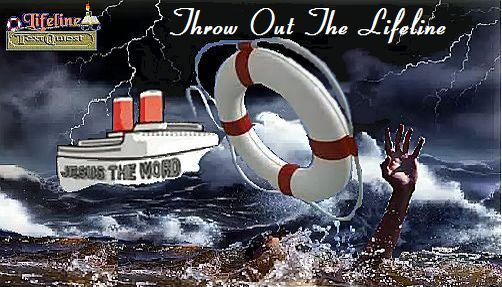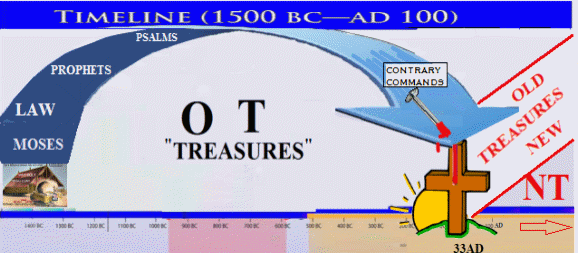

CAN WE HAVE A TALK WITH JESUS?

| Q.
Would you mind sharing your knowledge of God's word on just how we
relate to Jesus during the time we are living? I believe
conservative Christians avoid being a cult type "Jesus person"
and avoid Him completely except for a closing to prayers. Do we only
talk thru Him as our mediator or do we also talk to Him directly? I
don't want to ignore Him but I don't want to assume a relationship
that is in any way disrespectful. - JWW. - - - Answer page 1 ... |
OUR RELATIONSHIP TO THE LORD’S PRAYER - A
What is our relationship with the Lord Jesus? This is a very important question for all Christians. Relationship has to do with communication: Merriam-Webster defines the term “relationship” as “the way in which two or more people, groups, countries, etc., talk to, behave toward, and deal with each other.”i Our challenge then, as I see it, is “Do we only pray to God via Jesus or can we talk to Jesus directly?”
The Lord’s Prayer. The primary creed for Christians praying apparently is rooted in what is called “The Lord’s Prayer.”ii This is the prayer taught by Jesus to his disciples, beginning with “Our Father” and is recorded with two versions in Matthew 6:9-13 and Luke 11:2-4. To start with, there is much misinformation and misunderstanding about this prayer. To facilitate our study on the matter let’s assess whether you and I are on the same page concerning the facts relative to the giving of the prayer.
An Assessment of Our Agreement On the Ending of OTiii and the Beginning of the NT.iv
1. Sin. First, do you believe that sin is disobeying God’s law? Yes? o No? o
“Everyone who sins breaks God's law, because sin is the same as breaking God's law” (1 John 3:4, CEV).
2. OT Law or New Testament Law. If you said “yes”, then do you believe that the OT Law is a different law from that of Jesus’ NT’s “law of faith”? Yes? o No? o
“Behold, thou art called a Jew, and restest in the law [OT], and makest thy boast of God” (Romans 2:17). “Where is boasting then? It is excluded. By what law? of works? [OT Law] Nay: but by the law of faith” (Romans 3:27).
3. Jesus’s Teaching On Earth. If you answered “yes”, do you believe that Jesus as well as John (the Baptist) taught repentance toward their OT’s “Law and Prophets” (Luke 24:44)? Yes? o No? o
Jesus: “For I am not come to call the righteous, but sinners to repentance” (Matthew 9:13b).
4. Old Testament and the Cross of Jesus. If you answered “yes”, then do you believe that Jesus did away with the OT Law’s commandments that were “contrary to the fellowship of Jews and Gentiles”, such as the sabbath rules, holy days, and dietary rules, by “nailing them to His cross” (Colossians 2:13-17)? Yes? o No? o
“Let no man therefore judge you in meat, or in drink, or in respect of an holyday, or of the new moon, or of the sabbath days” (Colossians 2:16).
5. New Testament and the Cross of Jesus. If you answered yes, then do you believe that Jesus’ NT came into force after the cross (Hebrews 9:15-17)? Yes? o No? O
“For a testament is of force after men are dead: otherwise it is of no strength at all while the testator liveth” (Hebrews 9:17).
6. Jesus’ Ministry and the OT. If you answered yes, then while Jesus was in human form was He not obligated to fulfil the current OT - “the Law and the Prophets” (Matthew 5:17, 18)? Yes? o No? o
“Think not that I am come to destroy the law, or the prophets: I am not come to destroy, but to fulfil. For verily I say unto you, Till heaven and earth pass, one jot or one tittle shall in no wise pass from the law, till all be fulfilled” (Matthew 5:17, 18).
7. Jesus and His Public Teaching. If you answered yes, then was not Jesus obligated to not only do the (OT) “Law” but to teach men to obey it lest He Himself would be least in the coming Kingdom (Matthew 5:19)? Yes? o No? o
“Whosoever therefore shall break one of these least commandments, and shall teach men so, he shall be called the least in the kingdom of heaven: but whosoever shall do and teach them, the same shall be called great in the kingdom of heaven” (Matthew 5:18, 19).
8. Condemnation for Teaching a Different Testament. If you answered yes, then do you not believe that a prophet who taught a teaching contrary to Moses’s teaching*v was subject to death? Yes? o No? o
“And that prophet, or that dreamer of dreams, shall be put to death; because he hath spoken to turn you away from the LORD your God, which brought you out of the land of Egypt, and redeemed you out of the house of bondage, to thrust thee out of the way which the LORD thy God commanded thee to walk in. So shalt thou put the evil away from the midst of thee” (Deuteronomy 13:5). “For we have not an high priest which cannot be touched with the feeling of our infirmities; but was in all points tempted like as we are, yet without sin” (Hebrews 4:15).
9. His Pre-Cross Teaching Did Not Contradict the Old Testament. Since Jesus was always under scrutiny and yet was put to death not for sin against the OT but only for saying He was deity, do you believe that His teaching before the cross would have been consistent with the Old Testament? Yes? o No? o
“All the council, sought false witness against Jesus, to put him to death” (Matthew 26:59b). “Yet found they none” (Matthew 26:60b). “But Jesus held his peace. And the high priest answered and said unto him, I adjure thee by the living God, that thou tell us whether thou be the Christ, the Son of God” (Matthew 26:63b). “Jesus saith unto him, Thou hast said” (Matthew 26:64a). ”They answered and said, He is guilty of death” (Matthew 26:66). “The Jews answered him, We have a law, and by our law he ought to die, because he made himself the Son of God” (John 19:7).

10. What the Kingdom Contained. Jesus did teach in parables about His coming Kingdom. Do you believe that He taught that His Kingdom would contain both new teachings as well as some old? Yes? o No? o
“And I will give unto thee the keys of the kingdom of heaven: and whatsoever thou shalt bind on earth shall be bound in heaven: and whatsoever thou shalt loose on earth shall be loosed in heaven” (Matthew 16:19; cf. with 18:1,18 and Mark 9:35). “Then said he unto them, Therefore every scribe which is instructed unto the kingdom of heaven is like unto a man that is an householder, which bringeth forth out of his treasure things new and old” (Matthew 13:52).
If we agree up to this point, then we are ready to study together what is called “the Lord’s Prayer.”
Some questions to be explored, “Why does Jesus use a series of imperativevi sentences?” “Is there a reason why Jesus says to pray for the Kingdom to come?” “Why doesn’t it mention the Holy Spirit (Luke 11:13) or ‘in Jesus’ name’?” “Why doesn’t it mention praying for the sick?” “Or, for the government?” “Or, for the salvation of others (Romans 10:1)?” “Or, for healings (James 5:14,15)?” “Or, for wisdom?” “Or, for boldness to speak His Word? (Acts 4:29). “Why doesn’t it mention giving thanks?” “Why do some current rabbis claim that everything that it contains are what they would pray for?” “Why didn’t Jesus mention an unique prayer for Christians?” “Why is it that there is no record after the cross of anyone in the Scriptures praying this prayer?” “What is the difference between this prayer and prayers recorded in the OT?”
i https://www.merriam-webster.com/dictionary/relationship
ii http://www1.cbn.com/biblestudy/the-correct-way-to-pray.
https://www.allaboutprayer.org/how-to-pray-to-god-faq.htm.
https://billygraham.org/story/prayer-101-how-do-i-talk-to-god/.
iii OT: my abbreviation for the Old Testament, or “the Law, the Prophets and the Psalms”; often referred to as the “Law of Moses.”
iv NT: my abbreviation for the New Testament of Jesus Christ. An example, “For this is my blood of the New Testament, which is shed for many for the remission of sins” (Matthew 26:28).
v *Note. John’s baptism was not contrary to Moses any more than the prophet Isaiah’s instruction to Naaman who was instructed to immerse 7 times for cleansing from physical corruption.
vi Imperative Mood: in English can be a command or a request. Which is meant by Jesus? The answer is in the original language Greek, rather than the English. The Greek uses a special verb for a request that is not apparent in the English.

|